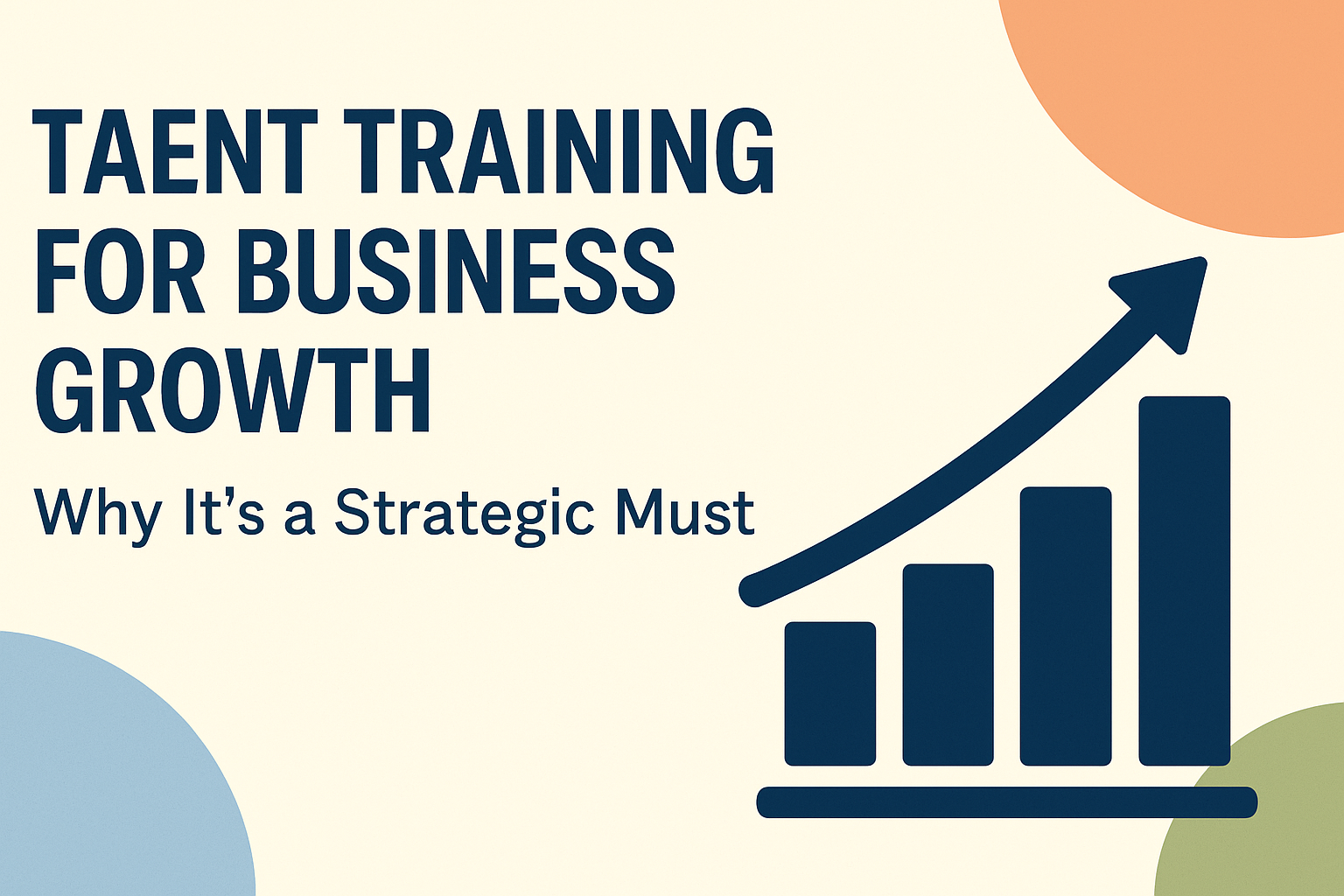Talent training for business growth is more than a trend—it’s a critical business strategy. In a quickly evolving world, companies need people who can adapt, grow, and lead through change. With effective training programs in place, HR leaders can fuel performance, drive innovation, and future-proof their workforce.
1. Why Talent Training Gives Your Business a Competitive Edge
Today, training isn’t just about compliance or onboarding—it’s about equipping your team to thrive. A strong learning culture shows your people they’re valued and invested in, which boosts engagement and loyalty.
- Increased productivity: Trained teams work smarter and faster.
- Greater innovation: Ongoing learning sparks creative thinking.
- Better retention: Employees stay longer when they see a future.
2. Build Stronger Teams With Purposeful Training
Training helps people perform better, both individually and as part of a team. According to SHRM, companies that invest in robust training see up to 24% higher profit margins.
3. Train for Agility and Innovation
Teams that continuously learn are more agile and innovative. Whether you’re rolling out new tech, launching products, or entering new markets, having adaptable talent is essential—and training is how you get there.
4. Make Learning Part of Your Culture
Training should be woven into your company culture. When learning is normalized and encouraged, people are more likely to take initiative, grow their skills, and contribute at a higher level.
5. What a Strong Training Strategy Looks Like
Effective talent training for business growth doesn’t happen by accident—it takes planning and intentional design. Here’s what to focus on:
- Identify skill gaps using data and feedback
- Set measurable training goals
- Use blended formats that match how your team learns
- Leverage smart tools like Degreed or Coursera for Business
- Track progress and continuously improve your programs
Need a starting point? Check out our guide to building impactful learning programs.
6. HR Tech Trends Powering Modern Training
Technology is transforming how we train, making it more personalized, scalable, and engaging than ever.
- Microlearning: Short modules that boost retention
- AI-powered platforms: Tailored content delivery
- Social learning: Peer-based coaching and collaboration
- VR and AR: Immersive simulations for real-world practice
7. How to Measure the ROI of Training Programs
To make a business case for training, you need to show results. The Kirkpatrick model is a popular framework for evaluating training effectiveness:
- Reaction: How did learners feel about the experience?
- Learning: What new knowledge or skills did they gain?
- Behavior: Are they applying it on the job?
- Results: Are business metrics improving as a result?
8. Align Learning With Business Growth Goals
For training to drive true business impact, it needs to align with your organization’s priorities—from product development to global expansion. Make learning part of your strategic roadmap, not an afterthought.
9. Break Down Silos With Cross-Functional Learning
Encouraging teams to learn together—across departments—improves collaboration and fuels innovation. Use workshops and cross-training to unify knowledge across the organization.
10. Keep Your Programs Relevant With Feedback
Regular feedback from learners and managers helps you refine your training efforts. Agile, responsive learning programs stay more effective and engaging over time.
11. What HR Can Do to Make an Immediate Impact
- Prioritize leadership development for future readiness
- Offer personalized learning paths for different roles
- Encourage self-directed growth with curated content
- Choose scalable platforms to grow with your workforce
Training is an investment that pays off—in retention, productivity, and employee satisfaction.
12. Real Results: TechCo’s Training Transformation
TechCo implemented a cloud-based training system that boosted course completion by 35% and productivity by 20% in just six months. These gains directly impacted their bottom line—proof that training drives business growth.
Bringing It All Together
Talent training for business growth is one of the most powerful strategies HR leaders have. When training is aligned with strategy, embraced culturally, and measured effectively, it drives real, lasting impact.
Start with your biggest skill gaps, deliver value through learning, and keep evolving. Your people—and your business—will benefit.
Ready to level up your learning strategy? Explore platforms like Coursera for Business or Degreed, or connect with us to build a roadmap that fits your goals.

